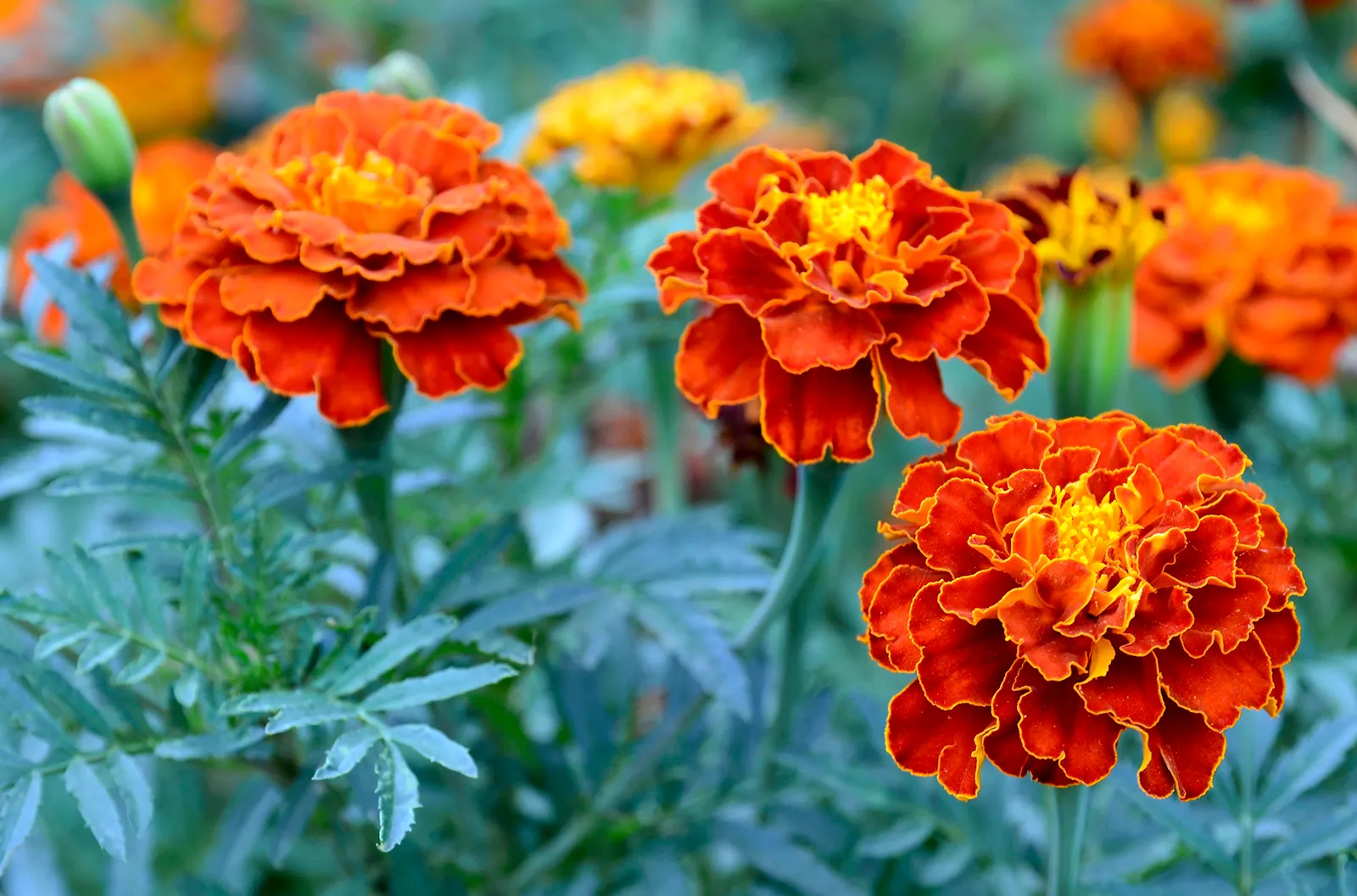
When it comes to vibrant and versatile flowers, few can match the beauty and charm of marigolds. These small, yet extraordinary flowers have been a favorite in gardens and landscapes for centuries. Marigolds (scientifically known as Tagetes) are native to the Americas and have been cultivated worldwide for their striking colors and numerous beneficial properties.
In this article, we will uncover 13 extraordinary facts about marigolds that are sure to captivate your imagination. From their rich symbolism to their extensive culinary and medicinal uses, marigolds have solidified their place as one of the most beloved flowers in the world. So, let’s dive in and explore the fascinating world of marigolds!
Key Takeaways:
- Marigolds are not just pretty flowers; they have medicinal properties, repel pests, and attract beneficial insects. They also have cultural significance and can be used in cooking and skincare.
- Marigolds come in a variety of colors and have been used in traditional medicine and as natural dyes. They are easy to grow and make excellent companion plants in gardens.
Marigolds come in a variety of colors
One of the standout features of marigolds is the wide range of colors they come in. From sunny yellows and rich oranges to fiery reds and even creamy whites, these flowers offer a splendid palette to choose from.
Marigolds symbolize different meanings
Throughout history, marigolds have been associated with various symbolic meanings. They are often linked to love, passion, and affection, making them popular choices for special occasions like weddings and anniversaries.
Marigolds have medicinal properties
Beyond their ornamental value, marigolds possess medicinal properties that have been recognized for centuries. Their petals and leaves are often used in herbal remedies to treat various conditions, including digestive issues and skin ailments.
Marigolds are natural pest repellents
Marigolds release a distinctive scent that repels many pests, making them a valuable companion plant for gardens. Planting marigolds alongside vegetables or other flowering plants can help deter harmful insects and protect your garden from infestations.
Marigolds have an extensive cultural significance
Marigolds hold immense cultural importance in many traditions around the world. They are commonly used in religious ceremonies, festivals, and celebrations, symbolizing purity, happiness, and good luck.
Marigolds attract beneficial insects
While marigolds deter harmful pests, they also attract beneficial insects like bees and butterflies. These pollinators play a crucial role in plant reproduction and contribute to the overall health and diversity of ecosystems.
Marigolds have been used in culinary creations
Believe it or not, marigolds are not just for visual and aromatic pleasure. Certain varieties of marigolds, with their subtly spicy flavor, are utilized in culinary preparations, adding a unique touch to salads, soups, and even desserts.
Marigolds have been used traditionally in skincare
Marigold extracts have long been incorporated into skincare products due to their soothing and healing properties. They are known to calm irritated skin, reduce inflammation, and promote healthy, glowing skin.
Marigolds have strong historical connections
Marigolds have been mentioned in ancient texts and have been utilized by civilizations throughout history. The Aztecs revered marigolds and used them in religious ceremonies and medicinal practices.
Marigolds are an excellent source of natural dyes
The vibrant hues of marigolds can also be harnessed to create natural dyes. The petals can be used to dye fabrics, yarns, and even food, providing a sustainable and eco-friendly alternative to chemical dyes.
Marigolds have been used in traditional medicine
Marigolds have been used in traditional medicine systems like Ayurveda and traditional Chinese medicine for their anti-inflammatory, analgesic, and antimicrobial properties. They have been used to alleviate headaches, reduce menstrual cramps, and promote overall well-being.
Marigolds are easy to grow
Even gardeners with minimal experience can enjoy the beauty of marigolds, as they are incredibly easy to grow. They thrive in sunny locations, require minimal watering, and can adapt to various soil conditions.
Marigolds are used in companion planting
The strong scent of marigolds acts as a natural deterrent to deter pests from neighboring plants. Gardeners often include marigolds in companion planting arrangements to protect their crops and promote healthier growth.
These are just a few of the extraordinary facts about marigolds. Their vibrant colors, delightful fragrance, and remarkable qualities make them an indispensable part of gardens, cultural traditions, and herbal remedies. Whether you’re a gardening enthusiast or simply appreciate the beauty of flowers, marigolds are sure to leave a lasting impression.
Conclusion
Marigolds are truly remarkable flowers, known for their vibrant colors and numerous benefits. From their rich cultural significance to their practical uses in gardens and beyond, marigolds have proven to be extraordinary in many ways.
With their ability to repel pests, promote overall plant health, and even provide natural dyes, marigolds have become a staple in homes and gardens worldwide. Their unique petal formations and distinctive aroma add a touch of beauty and charm to any space. Whether you’re looking to enhance your garden or explore the cultural significance of these flowers, marigolds are sure to captivate and fascinate.
So next time you see a marigold, take a moment to admire its beauty and remember the extraordinary facts that make it such a special flower.
FAQs
1. Are marigolds easy to grow?
Yes, marigolds are relatively easy to grow. They are hardy plants that can adapt to a variety of soil conditions and do well in both full sun and partial shade.
2. Do marigolds attract bees?
Marigolds are not known for attracting bees. In fact, their strong scent can repel certain pests, including bees. However, they do attract butterflies and other beneficial insects.
3. Can marigolds be used for medicinal purposes?
Yes, marigolds have been used for centuries in traditional medicine. Their anti-inflammatory and antiseptic properties make them useful for treating minor skin irritations, wounds, and insect bites.
4. Are all marigold varieties edible?
No, not all marigold varieties are edible. It’s important to differentiate between the common garden marigolds (Tagetes genus) and the calendula marigolds (Calendula genus), which are the ones typically used for culinary purposes.
5. Can marigolds be grown indoors?
Yes, marigolds can be grown indoors in containers as long as they receive enough sunlight. However, they prefer to be planted outdoors where they have ample space to spread and grow.
Was this page helpful?
Our commitment to delivering trustworthy and engaging content is at the heart of what we do. Each fact on our site is contributed by real users like you, bringing a wealth of diverse insights and information. To ensure the highest standards of accuracy and reliability, our dedicated editors meticulously review each submission. This process guarantees that the facts we share are not only fascinating but also credible. Trust in our commitment to quality and authenticity as you explore and learn with us.


